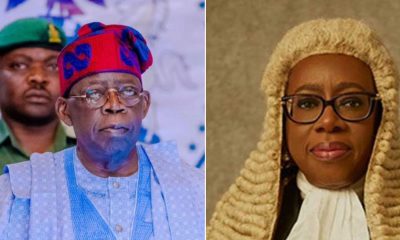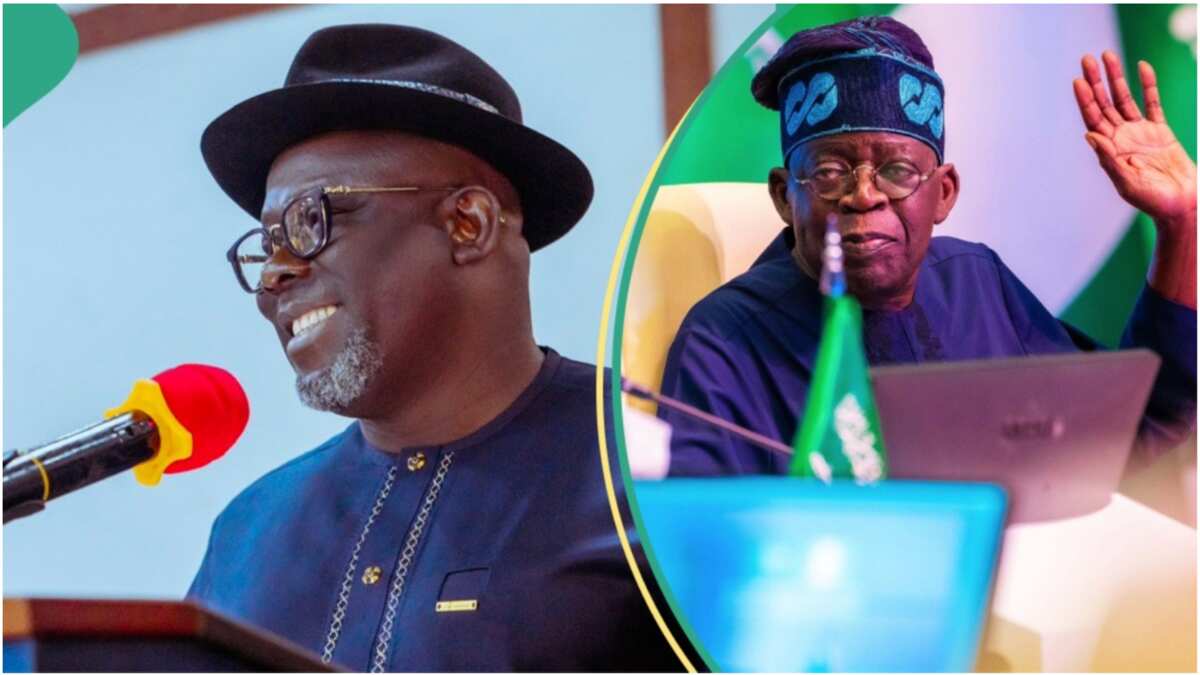Headlines
President Tinubu signs 2023 Electricity Act Bill into law

President Tinubu signs 2023 Electricity Act Bill into law
President Bola Tinubu has assented to the 2023 Electricity Act which is a replacement for the Electricity and Power Sector Reform Act of 2005.
The Act will bring about the de-monopolization of Nigeria’s electricity generation, transmission, and distribution of electricity at the National level and empower states, companies, and individuals to generate, transmit and distribute electricity.
The Electricity Act was first passed in July 2022 under the Muhammadu Buhari administration.
It provides a framework to guide the post-privatization phase of the Nigerian Electricity Supply Industry (NESI) as well as encourage private sector investments in the sector.
Under the Act, states can issue licenses to private investors who can operate mini-grids and power plants within the state. However, the Act precludes interstate and transnational electricity distribution.
Under the Electricity Act 2023, the Nigerian Electricity Regulatory Commission (NERC) will be able to regulate the electricity sector within Nigeria without prejudice to the powers of the states to make laws and create electricity markets within those states and to regulate those markets.
The Act mandates how NERC can transition regulatory responsibilities from itself to state regulators when they are established. Until a state has passed its electricity market laws, NERC will continue to regulate electricity business exclusively carried out in those states.
For now, Lagos, Edo and Kaduna states already have electricity market laws and can start regulating their market. But for other states without such laws, NERC will regulate. NERC will still carry out cross-border regulations – generation, and transmission across states will still be regulated by NERC.
The Act grants lawmakers the power to carry out oversight responsibilities and function over the NESI through its respective Committees on Power in the Senate and House of Representatives. This is to be carried out notwithstanding the supervisory powers of any government Ministry over government-owned enterprises or other entities operating in the Nigerian electricity supply industry.
Headlines
Akwa Ibom APC Gears Up to Receive President Tinubu as Governor Umo Eno Joins Party
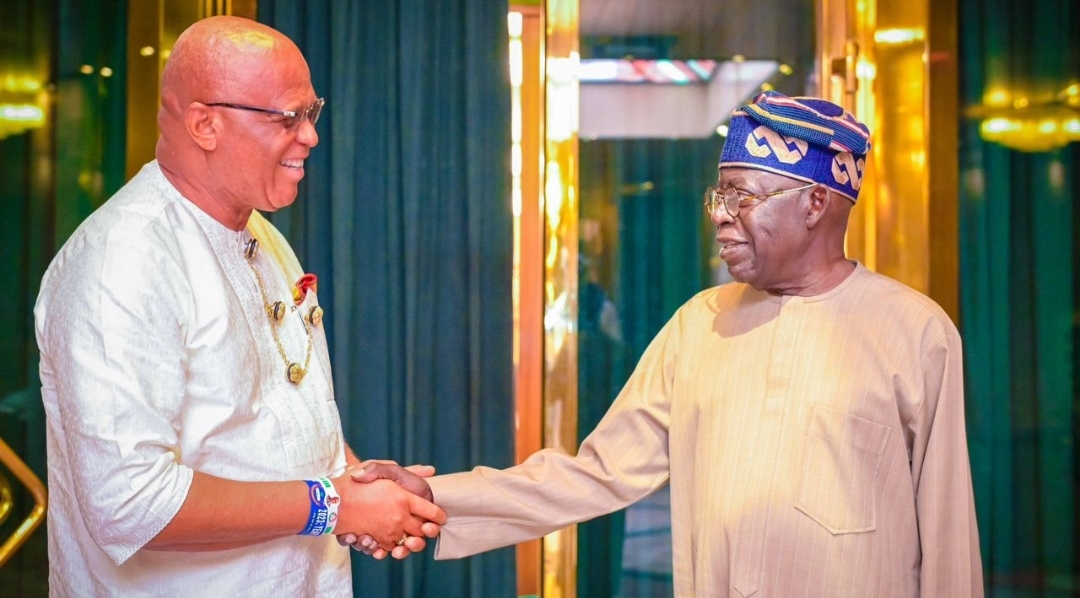
The All Progressives Congress (APC) in Akwa Ibom State has announced its readiness to host President Bola Ahmed Tinubu and other top party leaders as it officially welcomes Governor Umo Eno into its ranks.
Speaking at a press briefing in Uyo on Friday, APC chieftain and former presidential aide, Senator Ita Enang, disclosed that the party was fully prepared to receive the president, Vice President Kashim Shettima, APC National Chairman, and governors elected on the party’s platform for the historic reception.
Governor Umo Eno had on June 6 formally defected from the Peoples Democratic Party (PDP) to the APC, in a move widely described as a political game-changer in Akwa Ibom.
Enang, a former Special Assistant to the President on National Assembly and Niger Delta Affairs, said the governor’s defection had effectively aligned the state with the central government.
He assured Governor Eno and his supporters that the APC would embrace them wholeheartedly and honour all agreements reached.
“As progressives, we shall work with the governor and his supporters to ensure that they fit into the party without hitches,” Enang stated. “We will also work with them to align programmes of the state government with the ideals and manifesto of the party.”
He further described the governor’s move as a “merger” that promises significant benefits for Akwa Ibom and its citizens.
The planned reception is expected to mark a major political event in the state, signaling a realignment of forces ahead of future elections.
Headlines
Ekiti Launches Aggressive Anti-Flood Campaign, Dredges Ofigba River

The Ekiti State Government has intensified efforts to prevent flooding across the state with the launch of a comprehensive dredging campaign, targeting critical waterways in both rural and urban areas.
Chairman of the Ekiti State Environmental Protection Agency (EKSEPA), Chief Bamitale Oguntoyinbo, disclosed this on Friday during an inspection visit to the ongoing dredging project at the Ofigba River in Ise-Ekiti.
Oguntoyinbo, who was accompanied by EKSEPA board members, said the visit was to assess the progress of work being carried out to mitigate flood risks in the community. He expressed satisfaction with the pace and quality of the dredging work.
“I and other board members of EKSEPA are delighted with the level of job done by the site engineer because he is actually working with the directives of three-kilometer dredging of waterways,” he said.
According to him, the dredging commenced on June 4, and so far, 1.8 kilometers of the river have been successfully cleared.
He applauded Governor Biodun Oyebanji for prioritizing the safety and welfare of residents by initiating the state-wide anti-flooding campaign.
“I want to commend our amiable governor, Mr. Biodun Oyebanji, for embarking on zero tolerance campaign against flooding in every community and town in Ekiti,” Oguntoyinbo stated.
He also praised the General Manager of EKSEPA, Mr. Olukayode Adunmo, for his commitment to the project’s supervision and success.
In his remarks, Adunmo emphasized the urgent need to clear waterways choked by refuse, which impede water flow and contribute to flooding during the rainy season.
“Dredging of Ofigba River in Ise-Ekiti in Ise/Orun Local Government Area is necessary because some of the waterways have been blocked by refuse,” he explained. “There is the need for us to remove every blockage to enhance free flow of water and avert flooding during heavy rainfall.”
Adunmo also commended Governor Oyebanji for taking proactive steps to protect lives and properties across the state.
Residents of Ise-Ekiti have welcomed the government’s intervention. Chief Godwin Ojo, a community leader, expressed gratitude to the governor for his timely action.
“We thank the governor for the move to avert flooding in our community,” Ojo said. “May God grant him more wisdom to pilot the affairs of the state to an enviable height.”
The dredging campaign forms part of the Oyebanji administration’s broader commitment to environmental safety and disaster prevention.
Developmental
Tinubu to visit Kaduna Thursday to inaugurate key projects
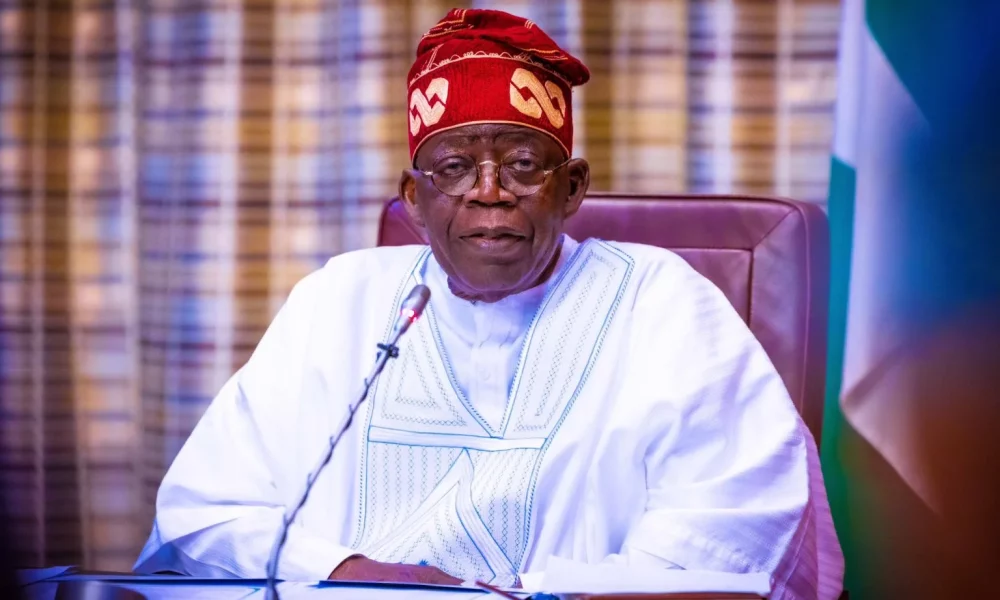
President Bola Tinubu is expected in Kaduna State Today Thursday for the inauguration of several key developmental projects executed by the administration of Gov. Uba Sani.
The News Agency of Nigeria (NAN) reports that the visit forms part of activities marking Sani’s two years in office.
The projects lined up for inauguration include the 300-bed Specialist Hospital in Millennium City, Kaduna, built by the state government to bolster the provision of healthcare services.
Tinubu will also inaugurate the Institute of Vocational Training and Skills Development in Rigachikun, road projects in Soba, and Samaru Kataf LGA’S as well as the 24-kilometre Kafanchan Township Road.
Others are the Tudun Biri Road, the 22km road linking Kauru and Kubau LGAs as well as the Vocational and Skills Training Centre in Tudun Biri.
Tinubu is also expected to unveil 100 Compressed Natural Gas (CNG) buses, as part of efforts to modernise the state’s public transportation system.
The projects are part of the administration’s focus on infrastructurde evelopment, healthcare delivery, youths empowerment, and economic growth.
The state government described the visit as a significant moment for the people of Kaduna and an opportunity to showcase ongoing efforts to transform the state through impactful governance.
Sani, who marked his second year in office this month, has prioritised human capital development, rural infrastructure, and jobs creation since taking office in 2023.
Tinubu’s visit to Kaduna State was rescheduled from Wednesday to Thursday.
He was initially supposed to visit Kaduna on Wednesday, but due to the recent attacks in Benue, he shifted his trip.
The president visited Benue on Wednesday to commiserate with the victims of the recent attacks and assess the humanitarian crisis.
During his visit to Benue, Tinubu met with stakeholders, including traditional rulers, political and community leaders, and youth groups, to seek lasting solutions to the hostilities.
He also condemned the ongoing violence and called on the residents to embrace peace and mutual understanding.
NAN recalls that the Benue Government had declared a work-free day for Tinubu’s visit, urging the residents to turn out in large numbers to welcome him.
-

 Headlines3 years ago
Headlines3 years agoFacebook, Instagram Temporarily Allow Posts on Ukraine War Calling for Violence Against Invading Russians or Putin’s Death
-

 Headlines3 years ago
Headlines3 years agoNigeria, Other West African Countries Facing Worst Food Crisis in 10 Years, Aid Groups Say
-

 Foreign3 years ago
Foreign3 years agoNew York Consulate installs machines for 10-year passport
-

 News10 months ago
News10 months agoZero Trust Architecture in a Remote World: Securing the New Normal
-

 Entertainment3 years ago
Entertainment3 years agoPhyna emerges winner of Big Brother Naija Season 7
-

 Headlines1 year ago
Headlines1 year agoNigeria Customs modernisation project to check extortion of traders
-

 Economy1 year ago
Economy1 year agoWe generated N30.2 bn revenue in three months – Kano NCS Comptroller
-
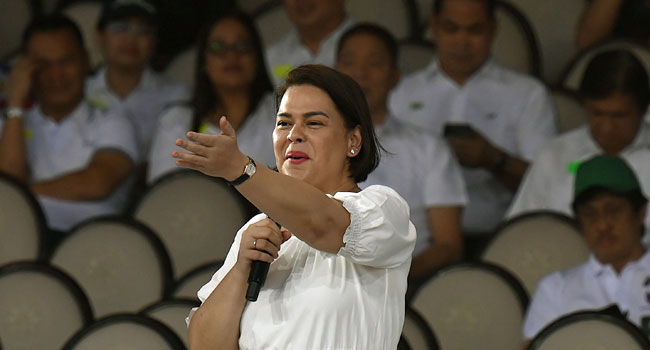
 Headlines1 year ago
Headlines1 year agoPhilippines’ Vice President Sara Duterte resigns from Cabinet





